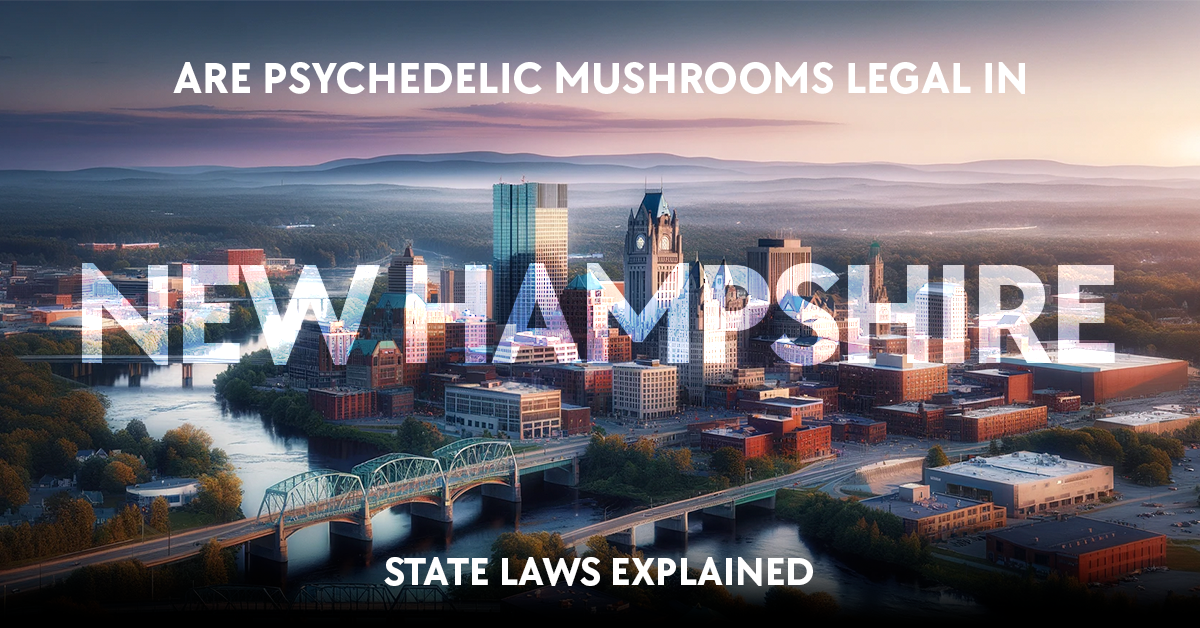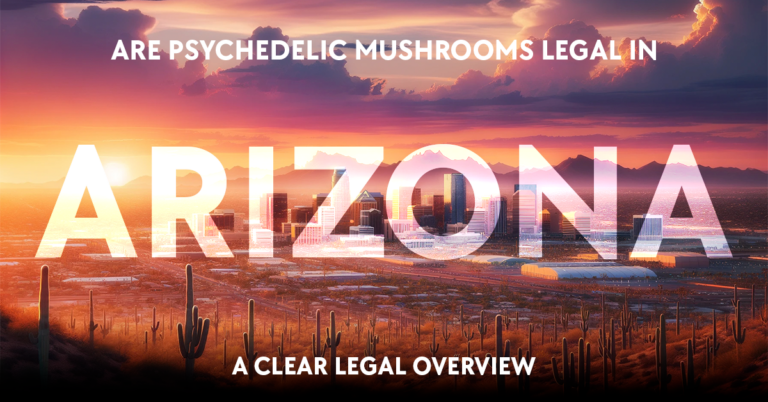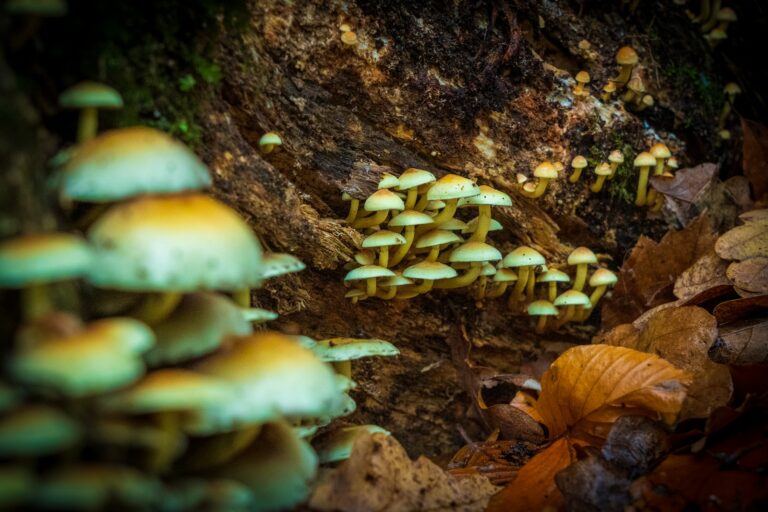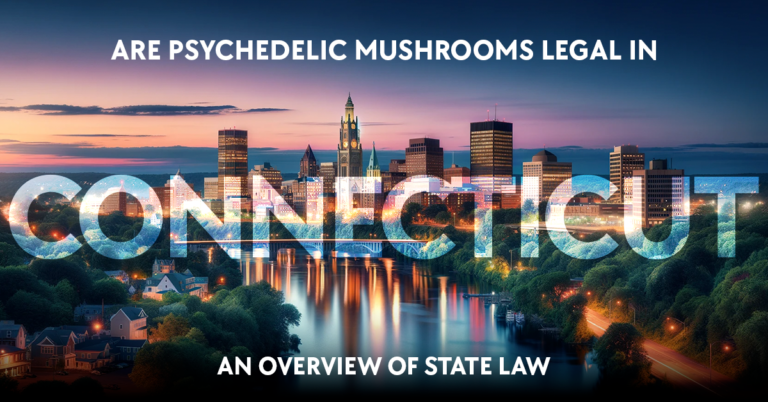When exploring the legal landscape of psychedelics in the United States, it’s crucial to understand that laws can greatly vary from one state to another. In New Hampshire, as with many states, the legality surrounding psilocybin mushrooms—commonly known as magic mushrooms—is clear. They fall under controlled substances due to the presence of psilocybin, an active psychedelic compound.
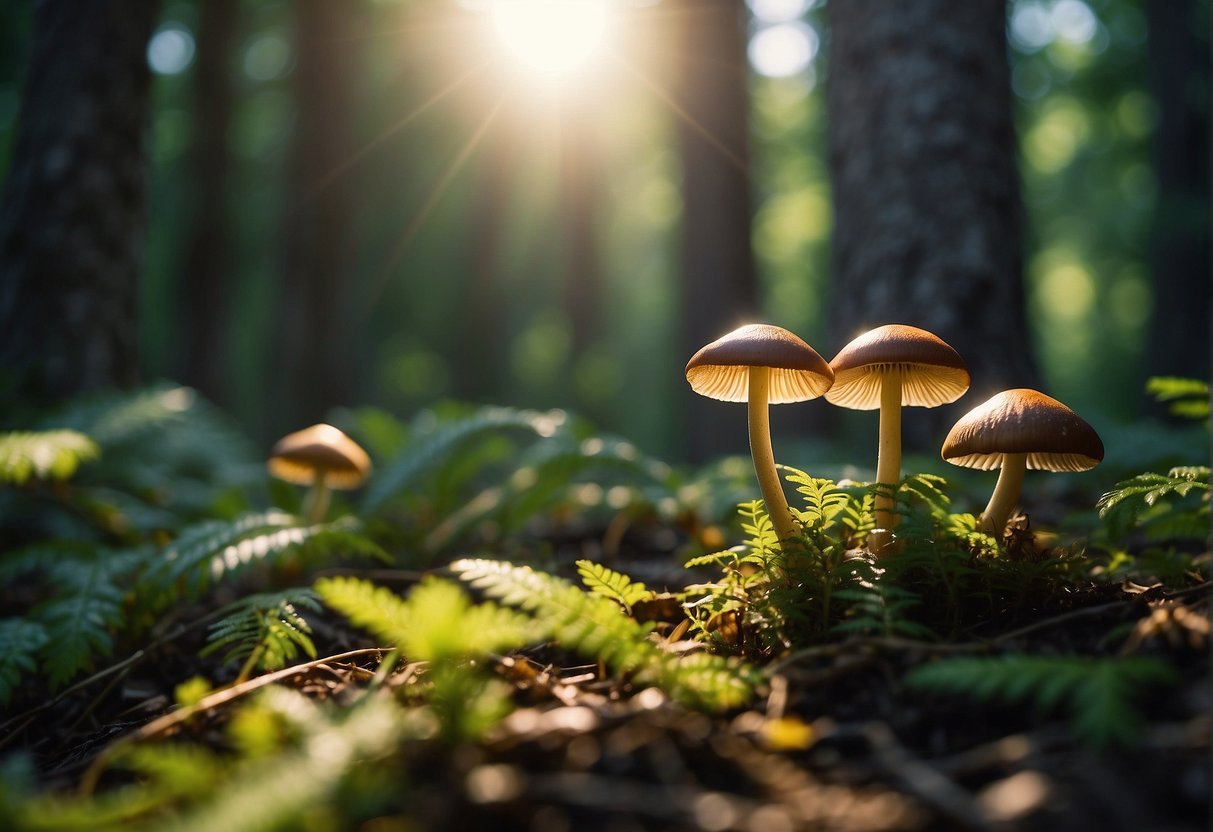
Under New Hampshire’s controlled substance laws, psilocybin is categorized alongside other substances with no recognized medical use and a high potential for abuse. This classification makes the possession, sale, and cultivation of psilocybin mushrooms illegal. As a resident or visitor in New Hampshire, it’s important to be fully aware of these regulations to navigate the legal system appropriately and avoid the significant penalties associated with violations of drug laws.
Legal Landscape in New Hampshire
Table of Contents
https://www.youtube.com/watch?v=p6LMcWIjZ5A&embed=true
Navigating the legal landscape in New Hampshire regarding psilocybin mushrooms is essential for your understanding of state laws, recent legislative efforts, and how these substances are classified compared to other controlled substances.
Current State Laws
In New Hampshire, psilocybin, the psychoactive compound found in “magic mushrooms,” is considered a Schedule I controlled substance. This means that possession, sale, or cultivation of psilocybin mushrooms is illegal under state law. The penalties for possession can range from fines to imprisonment, depending on the quantity involved and other factors such as prior offenses. The New Hampshire Supreme Court upholds these laws and legal precedents confirm the criminalization of psilocybin.
Recent Legislative Efforts
The New Hampshire legislature has not passed any recent bills that would change the legal status of psilocybin mushrooms. Efforts to modify statewide drug policy have been minimal in regard to psychedelic drugs, and the stance on legalization or decriminalization remains firm. Lawmakers have focused on other substances and public health initiatives.
Psilocybin Mushrooms vs. Other Controlled Substances
Psilocybin mushrooms are treated similarly to other Schedule I substances under New Hampshire law, which indicates no currently accepted medical use and a high potential for abuse. However, compared to substances like heroin or LSD, the public discourse and political attention on psilocybin are less intense. Despite changes in other states and shifting perceptions of psychedelic drugs, New Hampshire retains strict criminalization standards for psilocybin.
Medical and Therapeutic Research

In New Hampshire, the conversation surrounding psychedelic mushrooms is evolving, particularly in the context of their potential for medical and therapeutic research. You’ll find that studies increasingly focus on mental health treatment, while regulations shape the therapeutic use of these substances.
Studies on Mental Health Treatment
Current research is examining the effectiveness of psychedelic mushrooms for treating various mental health conditions. Therapeutic studies have shown promise in the alleviation of depression, anxiety, and PTSD among patients. Notable is the use of psilocybin, the active compound in psychedelic mushrooms, for medicinal use, which includes easing existential anxiety related to terminal illness. The application of psychedelic therapy, under controlled settings, plays a pivotal role in these clinical trials, with emerging evidence suggesting potential benefits in mental health treatment.
Regulations on Therapeutic Use
You should be aware that despite the ongoing studies, the regulatory framework for the therapeutic use of psychedelic mushrooms remains strict. New Hampshire has not legalized the medicinal use of these substances, and patients currently cannot access psychedelic therapy for conditions like depression or anxiety within the state. Access to these treatments is contingent upon federal and state law, which requires rigorous clinical research to establish the safety and efficacy of psychedelics in a therapeutic context. Any clinical trials or medicinal applications must comply with these regulations.
Social and Cultural Factors
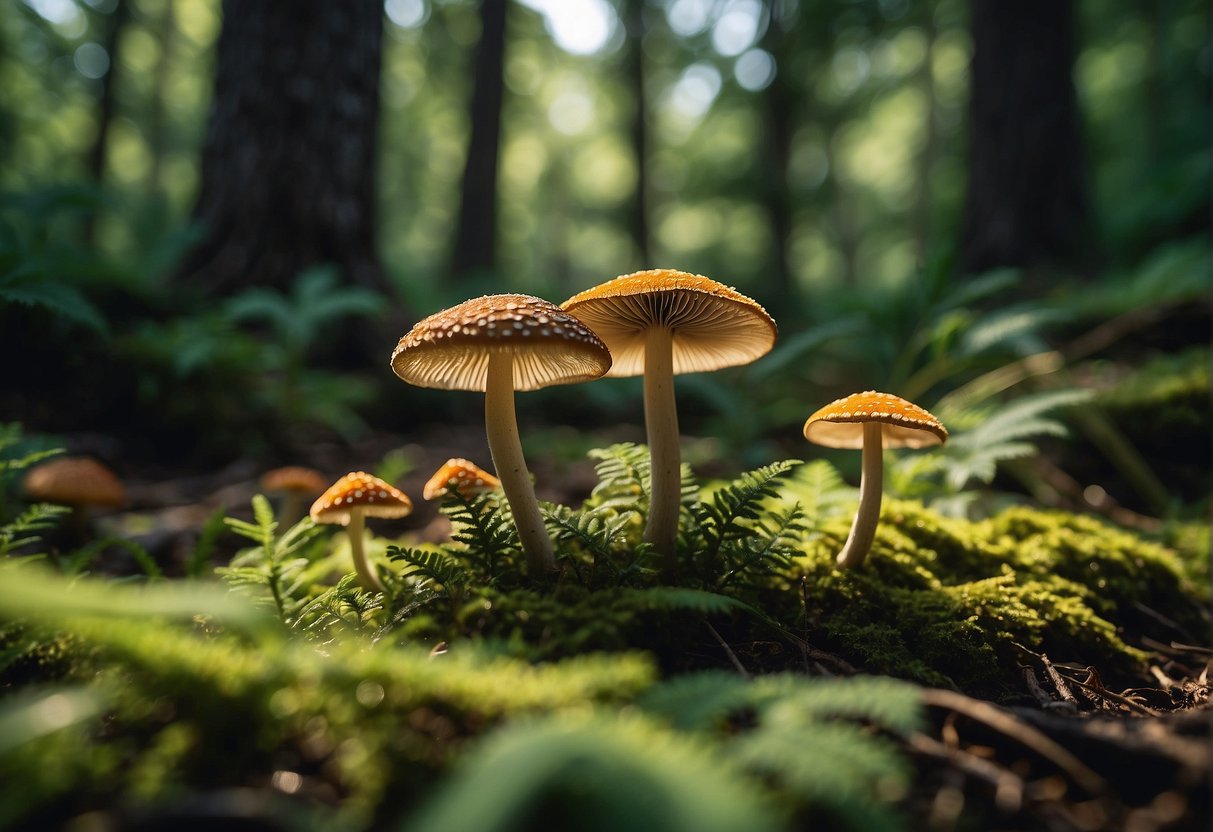
In considering whether psychedelic mushrooms are legal in New Hampshire, it’s essential to examine not only the laws themselves but also the social and cultural context that shapes public opinion and comparative stances in other states.
Public Opinion on Psychedelics
Your understanding of the legality of psychedelic mushrooms in New Hampshire may benefit from a grasp of the public’s views on psychedelics. Nationwide, there’s been a shift toward decriminalization of substances like cannabis, which can impact perceptions of other substances like magic mushrooms. In states like Oregon and Colorado, decriminalized status for these substances reflects a significant cultural change. Maine and Vermont have also shown openness to discussing similar policies, indicative of a more tolerant national stance. However, it is crucial to stay informed as these opinions can vary greatly by demographics including age—where adults may have differing views on the safety and use of psychedelics compared to younger populations.
Comparative Stance in Other States
When you look at Oregon, for instance, they have taken the unprecedented step to decriminalize the possession of small amounts of all drugs, including psychedelics like psilocybin, the psychoactive component in magic mushrooms. Meanwhile, Colorado has decriminalized the use of cannabis for recreational purposes, which may set a cultural precedent affecting attitudes toward the legal status of psychedelics. Furthermore, while New Hampshire has yet to declare a similar decriminalization, neighboring states like Maine and Vermont are exploring changes to their drug policies that could influence the regional culture and legislation. Keep in mind, the United States, at a national level, still classifies psilocybin as a Schedule I substance, which creates legal and social tensions around the subject matter, particularly when juxtaposed against more lenient state laws.
Decriminalization Movements
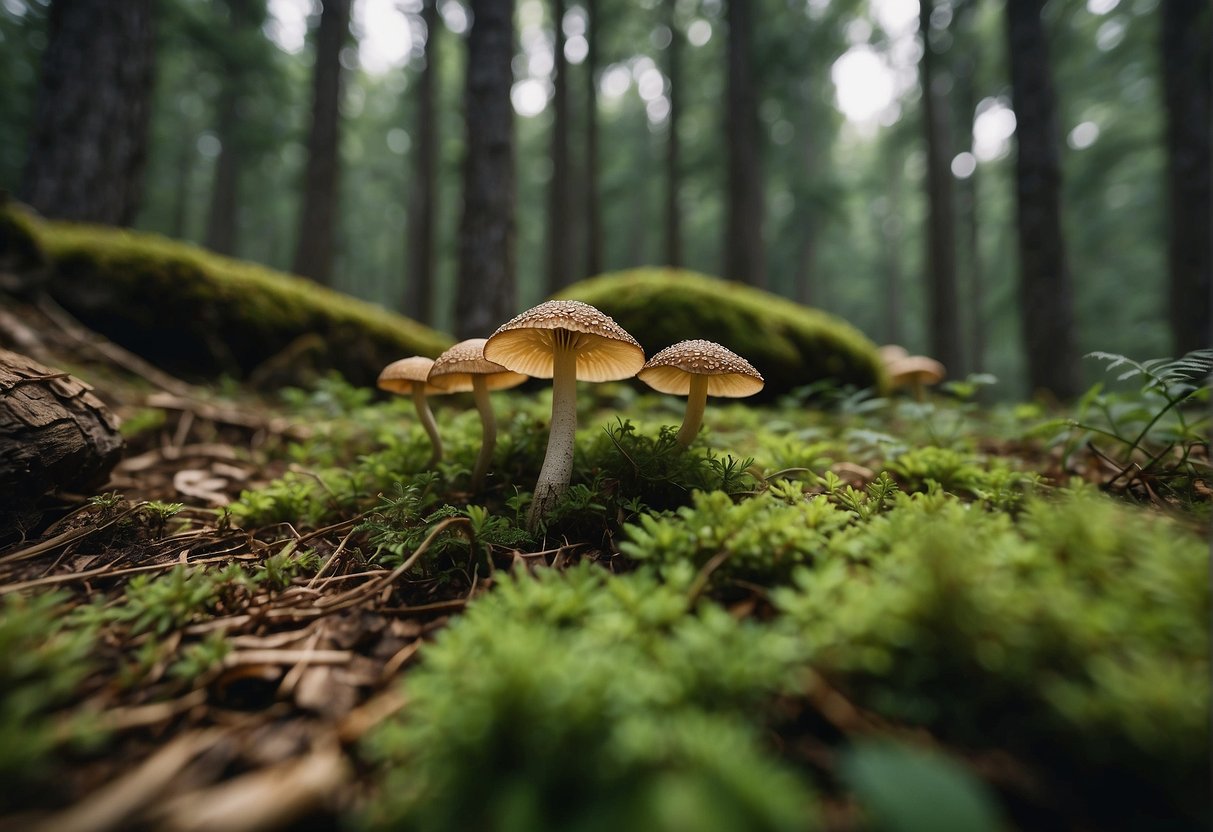
The push to decriminalize psilocybin mushrooms in the United States gains momentum, challenging existing federal prohibitions. You’ll see a rise in advocacy and a clash between local reforms and federal law.
Advocacy and Activism
Your awareness of the decriminalization movement is vital. Activists are tirelessly working to reframe the national conversation around psychedelics, positioning substances like psilocybin mushrooms and peyote as tools for therapeutic and religious use. Fueled by disillusionment with the War on Drugs, the decriminalization effort is often led by grassroots organizations intent on shifting policy at the local level before hoping to influence change nationwide.
- Oregon: A beacon for activists, having passed a ballot measure to decriminalize the possession of small amounts of drugs, including psilocybin.
- Denver: The first city in the U.S. to decriminalize the possession and use of psilocybin mushrooms.
Local vs. Federal Perspectives
When you compare local and federal stances, the contrast is stark. Localities like Denver have taken progressive steps by making possession of psilocybin mushrooms the city’s lowest law enforcement priority. Yet, at the federal level, psilocybin remains a Schedule I substance, reflecting zero tolerance within the overarching government policy. This discrepancy underscores a growing dialogue aimed at reforming outdated federal laws.
- Federal law: Classifies psilocybin as an illegal substance with no accepted medical use.
- Local jurisdictions: Some have decriminalized possession, signaling a shift toward a health-focused approach.
It’s your understanding of the legal landscape that will discern the nuances of the decriminalization movements across the United States. Keep in mind that while legalization differs from decriminalization, both concepts are crucial in ongoing activism and policy reform discussions.
Practical Considerations
When examining the legal landscape of psilocybin mushrooms in New Hampshire, it is crucial to understand enforcement practices and the associated penalties. Additionally, awareness of potential risks and safety measures is of utmost importance for your protection.
Enforcement and Penalties
Enforcement of laws regarding psilocybin mushrooms typically involves local and state police. If caught in possession of these substances, you may face criminalization and offences under state drug laws. Penalties can vary, but possession of psilocybin mushrooms may lead to charges ranging from misdemeanors to felonies, depending on the amount. For example, a small amount for personal use could result in a $100 fine or more, and potential jail time.
Potential Risks and Safety Measures
Using psilocybin mushrooms also comes with potential risks. It is important to consider the safety of both persons and property. If you or someone you know is considering using psilocybin, it is essential to:
- Be aware of mental health risks, as psilocybin can cause distressing psychological effects.
- Ensure there is a sober person present who can intervene in case of an adverse reaction.
- Recognize the possibility of unintentional injury to oneself or others under the influence.
Being knowledgeable about these aspects can help mitigate risks associated with the use of psilocybin mushrooms.
Historical and Legal Precedents
Your understanding of the legal status of psychedelic mushrooms in New Hampshire is best informed by examining key judicial decisions and the interplay between state and federal laws.
Supreme Court Rulings
The United States Supreme Court has not directly ruled on the legality of psilocybin mushrooms, leaving their classification as a Schedule I Controlled Substance in place. Psilocybin, the active compound in these mushrooms, is federally categorized alongside drugs with no currently accepted medical use and a high potential for abuse. This categorization affects the jurisprudence across the country, including New Hampshire.
State vs. Federal Legal Discrepancies
At the state level, New Hampshire law generally aligns with the federal stance, treating psilocybin as a Schedule I substance. However, discrepancies between state and federal jurisdictions can arise. While the federal level deems these substances illegal, states have the authority to enact their own laws regarding the decriminalization or medical use of such substances. To date, New Hampshire’s legislature and the New Hampshire Supreme Court have not deviated from the country’s overarching legal framework concerning the controlled status of psilocybin mushrooms.
Future Outlook
In considering the legal landscape regarding psychedelic mushrooms in New Hampshire, it’s important for you to understand that legislative and criminal justice reforms can significantly shape the future.
Legislative Predictions
You can anticipate ongoing debates within New Hampshire’s legislature about the legal status of psychedelic substances such as psilocybin mushrooms. With the growing body of research highlighting potential therapeutic benefits, some lawmakers may advocate for a shift in policy. Although no bill concerning the legalization or decriminalization of psychedelic mushrooms is currently enacted, the shifting perspectives on drug policy nationally could inspire local legislators to propose new measures. For instance, movements similar to those pertaining to marijuana decriminalization may pave the way for amendments to current substance laws.
Impact of Criminal Justice Reforms
Decriminalization efforts tend to be intertwined with wider criminal justice reforms aimed at reducing penalties for drug offenses. Reforms may involve adjusting the schedules of controlled substances or reclassifying certain drug offenses to decrease incarceration rates. The actions of the Criminal Justice and Public Safety Committee will be crucial in this respect, as they review and endorse policies that could alter the legal framework. Your attention to New Hampshire’s stance on drug policy reform may offer insights into future changes, and initiatives like drug policy projects often reflect a growing trend toward re-evaluating the legal approach to psychedelic drugs.
Related Policy Areas
In New Hampshire, the legal landscape surrounding psychedelic mushrooms intersects with broader drug regulations and healthcare policies addressing substance abuse treatment.
General Drug Legislation
The State of New Hampshire enforces drug laws that classify controlled substances into different schedules. Psychedelic mushrooms contain psilocybin, which is listed as a Schedule I substance, indicating no accepted medical use and a high potential for abuse. This classification puts them in the same category as other substances like LSD, heroin, and MDMA. It’s important for you to be aware that the possession, sale, or cultivation of psychedelic mushrooms is illegal in New Hampshire, just as it would be for substances like methamphetamine and cocaine.
On a larger scale, states like Alaska and Colorado have different approaches to the legislation of certain drugs such as cannabis, which may be permitted for medical or even recreational use unlike in New Hampshire. Recreational drugs, including alcohol, vary in legality and regulation from state to state, with places like Georgia and Alabama having their own specific sets of laws regarding the use and distribution.
Healthcare and Substance Abuse Treatment
New Hampshire’s healthcare policies recognize the importance of treating addiction and substance abuse, including that which involves the use of psychedelic mushrooms, cannabis, heroin, or cocaine. Treatment strategies may involve therapies for addiction to substances such as alcohol, ketamine, or PCP, with a focus on reducing the harm and health risks associated with substance abuse. It’s pertinent to understand that while there is growing interest in the potential therapeutic uses of psychedelics for treating certain conditions, including PTSD with MDMA-assisted therapy or depression with psilocybin, these treatments are not legally available in New Hampshire due to their status as Schedule I drugs.
Healthcare policies also extend to addressing the risks of substances like methamphetamine and mescaline, which can lead to severe health outcomes and require comprehensive treatment plans. Innovations in therapeutic approaches may prompt discussions about the future status of substances and inform potential changes in healthcare policy, as seen with the increasing research on substances like ayahuasca and its applications in mental health treatment.
Cultural and Indigenous Perspectives
When examining the legality of psychedelic mushrooms in New Hampshire, you must consider the cultural significance and historical use among indigenous groups which often intertwines with legal frameworks regarding religious freedom.
Religious Use and Legal Exemptions
In the United States, your religious freedom to use entheogenic plants like peyote and fungi is recognized under the American Indian Religious Freedom Act. This federal law protects Native American spiritual practices, including those of the Native American Church that traditionally uses peyote, a cactus with psychoactive properties similar to that of psychedelic mushrooms. Another group, the Oklevueha Native American Church, has also asserted rights for the use of various natural entheogens within the bounds of religious ceremonies. It is vital to understand that any legal exemptions to the use of psychoactive substances, including Psilocybin, the active ingredient in many psychedelic mushrooms, largely depend on their categorization under Article 5 of the Religious Freedom Restoration Act.
Comparison with Entheogenic Plants and Fungi
When you look at entheogenic plants such as ayahuasca, rich in the psychoactive compound DMT, and fungi like psychedelic mushrooms, a comparative analysis reveals a complex legal landscape. Ayahuasca use within ceremonial contexts has been legally allowed for specific religious groups, setting a precedent for similar considerations for psychedelic mushrooms. Both substances have deep roots in indigenous cultures with a long history of use for spiritual and healing purposes. While psychedelics like mescaline, the active compound in peyote, have exemptions for specific religious practice, the status of psychedelic mushrooms in New Hampshire doesn’t currently reflect the same degree of recognition for their cultural and religious significance. However, ongoing legal discourse could change this.
Frequently Asked Questions
In this section, you’ll find concise answers to common queries about the legal status of psychedelic mushrooms in New Hampshire.
What are the legal consequences of possessing psychedelic mushrooms in New Hampshire?
Possession of psychedelic mushrooms is illegal in New Hampshire and may lead to serious legal consequences, including fines and imprisonment.
Can individuals use psilocybin mushrooms for medical purposes under New Hampshire law?
New Hampshire law does not currently recognize psilocybin mushrooms as a legal substance for medical use.
Are there any active legislative efforts to change the legal status of psilocybin in New Hampshire?
While there have been proposals to decriminalize psilocybin, no active legislative efforts have successfully changed its legal status yet.
What is the current classification of psilocybin mushrooms under New Hampshire state law?
Under New Hampshire’s controlled substance laws, psilocybin mushrooms are classified as a Schedule I drug.
Has New Hampshire implemented any decriminalization policies for psychedelic substances?
To date, New Hampshire has not enacted any decriminalization policies specifically for psychedelic substances.
Are there legal defenses or exceptions for the use of psychedelic mushrooms in New Hampshire?
There are no widely recognized legal defenses or exceptions for using psychedelic mushrooms in New Hampshire, as indicated in Psilocybin Mushroom Legal Defenses.

